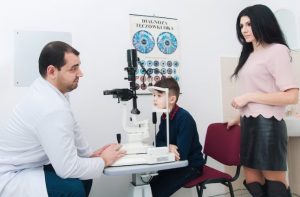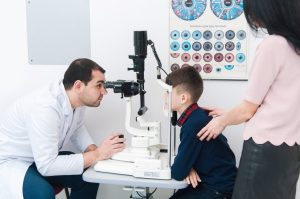Vision Therapy: Enhancing Visual Health Naturally
Vision Therapy
In today’s fast-paced world, where screens dominate our daily lives, maintaining good visual health is more crucial than ever. Many individuals experience vision issues that impact their daily activities and overall well-being. While traditional approaches like glasses and contacts are common, there’s a growing interest in a more holistic and proactive solution – Vision Therapy.
Understanding Vision Issues
Common Vision Problems
Various vision problems, such as myopia, hyperopia, and astigmatism, affect people of all ages. These issues can lead to headaches, eye strain, and difficulty concentrating.
Impact on Daily Life
Poor vision can hinder academic performance, workplace productivity, and even social interactions. Addressing these issues is essential for a fulfilling and comfortable life.
Traditional Approaches vs. Vision Therapy
While glasses and contacts provide immediate relief, they often don’t address the underlying causes of vision issues. Vision Therapy offers a more comprehensive and long-term solution.
Glasses and Contacts
Traditional corrective lenses are effective for clear vision, but they don’t actively work on improving the eye’s functionality.
Benefits and Limitations
Understanding the advantages and limitations of traditional approaches helps individuals make informed decisions about their visual health.
What is Vision Therapy?
Definition and Goals
Vision Therapy is a personalized program of exercises designed to enhance and improve visual skills. It aims to develop better eye coordination, focusing abilities, and overall visual processing.
Who Can Benefit?
Children and adults with vision issues, ranging from amblyopia to difficulties in eye tracking, can benefit from Vision Therapy.
Types of Vision Therapy Exercises
Eye Tracking Exercises
Activities that involve following moving objects with the eyes help improve tracking abilities, enhancing visual coordination.
Focus and Coordination Activities
Exercises that strengthen the eye muscles and improve focus contribute to a more comfortable and efficient visual experience.
The Science Behind Vision Therapy
Neuroplasticity and Vision Improvement
Vision Therapy leverages the brain’s ability to adapt and rewire itself – a concept known as neuroplasticity. This adaptability is crucial for improving visual functions.
Studies and Success Stories
Research and real-life success stories support the effectiveness of Vision Therapy in addressing various vision issues.
Vision Therapy for Children
Early Detection and Intervention
Identifying and addressing vision issues in childhood is crucial for academic success and overall development.
Academic and Social Benefits
Improved visual skills contribute to better academic performance and enhanced social interactions for children.
Vision Therapy for Adults
Workplace Challenges
Adults facing challenges in the workplace due to vision issues can benefit from Vision Therapy to enhance their visual performance.
Improving Visual Performance
Vision Therapy is not just for correcting issues but also for optimizing visual skills, providing adults with a competitive edge in their professional lives.
Choosing a Vision Therapist
Qualifications and Experience
Selecting a qualified and experienced vision therapist ensures effective and personalized treatment.
Patient Testimonials
Understanding others’ experiences can help in choosing the right vision therapist for individual needs.
The Duration and Cost of Vision Therapy
Average Length of Therapy
Knowing the typical duration of Vision Therapy prepares individuals for the commitment required for successful outcomes.
Financial Considerations
Exploring the cost of Vision Therapy and potential insurance coverage helps in planning for the financial aspect of treatment.
Success Factors and Challenges
Commitment and Consistency
Like any therapeutic approach, commitment and consistency are key to achieving positive results with Vision Therapy.
Potential Obstacles and Solutions
Being aware of potential challenges and having strategies to overcome them enhances the likelihood of success.
Integration with Other Treatments
Collaboration with Optometrists
Vision Therapy often complements traditional optometric treatments, providing a holistic approach to visual health.
Holistic Vision Care
Combining Vision Therapy with other aspects of eye care ensures a comprehensive and well-rounded treatment plan.
Myths Surrounding Vision Therapy
Debunking Common Misconceptions
Addressing misconceptions about Vision Therapy helps individuals make informed decisions based on accurate information.
Evidence-Based Facts
Presenting scientific evidence supporting the effectiveness of Vision Therapy reinforces its credibility.
Future Trends in Vision Therapy
Technological Advancements
As technology evolves, incorporating advanced tools and techniques into Vision Therapy enhances its efficacy.
Evolving Treatment Approaches
Ongoing research and development in the field continue to shape and refine Vision Therapy practices.
Conclusion
Vision Therapy stands as a promising and effective solution for individuals seeking to enhance their visual health naturally. By addressing the root causes of vision issues and actively improving visual skills, Vision Therapy offers a holistic approach to maintaining optimal eyesight.


